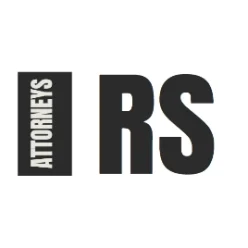
Using a TransUnion background check is a crucial tool for employers, landlords, and even for personal use to confirm information about credit history, criminal past, and other critically important data. We will examine in detail the types of checks TransUnion offers and how these services can be applied.
Types of TransUnion Checks
Standard Background Check
Description: Includes credit history, financial reliability review, and social security number verification.
Usage: Commonly used by employers to assess potential employees.
Criminal Background Check
Description: Gathers information from various databases, including federal, state, and local archives.
Usage: Required for positions requiring a high level of trust, including educational institutions and government bodies.
Self Background Check
Description: Allows individuals to check their own credit and criminal history.
Usage: Useful for a preliminary self-check before applying for jobs or rentals.
Process and Duration of TransUnion Background Checks
| Type of Check | Processing Duration | Key Elements of the Check |
| Standard Credit Check | 1-3 days | Credit history, debt checks |
| TransUnion criminal background check | 3-5 days | Criminal history, wanted lists |
| Self Background Check | 1-3 days | Full report on own credit history |
This information will help clients and users of TransUnion services understand the types of checks available and their main features. It is important to know how long it typically takes to receive results to plan accordingly based on your needs.
Understanding these aspects is critically important for making informed decisions, whether hiring employees, applying for a rental, or conducting a self-check before important events in your life.
Why Errors Occur and How to Identify Them
Errors in credit reports can occur for many reasons and have long-lasting negative consequences for your financial well-being. In this section, we will explore the main causes of errors and methods for their identification in the context of TransUnion background checks.
Causes of Errors
Human Factor
- Errors in data entry by employees of credit bureaus or financial institutions.
- Incorrect transcription of names, addresses, or other personal data.
Technical Errors
- Software malfunctions that lead to duplicate entries or incorrect classification.
- Problems with data synchronization between various banks and credit bureaus.
Fraud
- Identity fraud, where criminals open credit accounts in your name.
- Falsification of documents or credit applications.
How to Identify Errors
- Obtain a copy of your credit report: Order a TransUnion background check on myself through the official website or use one of the three credit bureaus (TransUnion, Equifax, Experian).
- Thoroughly examine the report: Check personal information: name, address, social security number. Pay attention to all credit accounts and their statuses. Ensure all debts and credits are actually yours.
- Compare information with other reports: Get reports from other credit bureaus for comparison. Differences may indicate errors.
- Use specialized services: Engage credit history monitoring or fraud protection services that can automatically detect and alert you to suspicious changes.
- Request corrections: If you discover an error, submit a formal request to TransUnion for its correction. Describe the error, provide supporting documents, and follow the process to ensure correction.
Identifying and correcting errors in credit reports are critical steps in maintaining your financial reputation and protecting against unjustified credit denials or other financial services.
Step-by-Step Guide to Correcting Errors in TransUnion Reports
If you find errors in your TransUnion credit report, it’s important to actively work to correct them. Here is a detailed guide that will help you step by step to correct inaccuracies and restore your credit history.
Step 1: Obtain a Copy of Your TransUnion Credit Report
- Visit the official TransUnion website. Go through the registration or login process.
- Request your credit report. TransUnion offers the opportunity to obtain one free copy of your report each year through AnnualCreditReport.com.
Step 2: Thorough Analysis of the Report
- Personal Data: Check your name, address, social security number, and other personal information for errors.
- Credit Accounts: Ensure that all credit accounts and transactions listed in the report are truly yours.
- Account Statuses: Check the statuses of accounts, payment history, and other important information for inaccuracies.
Step 3: Collect Necessary Documents
- Supporting Documents: Gather all documents that can substantiate an error in the report (payment documents, court decisions, official letters).
- Error Record: Compile a list of all errors you found and prepare an explanation and proof for each.
Step 4: Filing a Claim with TransUnion
- Online Dispute Form: Visit the TransUnion website and use their online service to file disputes. Fill out the form, indicating all discovered errors and attaching the necessary documents.
- Tracking the Process: After submitting the dispute, TransUnion is required to review your claim and make corrections within 30 days. They will provide you with information about the outcome of the dispute review. If nothing happens after 30 days – file a lawsuit against them.
Step 5: Verification of Corrections and Further Monitoring
- Confirmation of Corrections: After correcting errors, TransUnion will send you an updated credit report. Check this report for the accuracy of the corrections.
- Regular Monitoring: Continue to regularly check your credit report to ensure that new errors do not appear and previously corrected errors do not return.
Correcting errors in your credit report not only improves your credit rating but also ensures more favorable terms for loans and insurance policies. Actively managing your credit history is a key aspect of financial responsibility.
How We Can Help if TransUnion access denied: RS Attorneys Services
At RS Attorneys, we understand how important it is to have a clean credit history and accurate data in background checks. Our services are aimed at helping clients correct errors in credit reports and resolve disputes with credit bureaus, including TransUnion.
Our Advantages
Free Consultations
We offer a primary free consultation to discuss your situation and determine possible steps to improve your report.
No Payment Until Results
You only pay in case of a successful resolution of your case. Our payment is made through compensations we receive from credit bureaus and other institutions after successfully correcting errors in your report.
Legal Support
Our attorneys specialize in credit law and have deep knowledge and experience in resolving disputes with credit bureaus. We handle all aspects of the process—from filing the initial dispute to the final resolution of the problem.
How We Work
Analysis of Your Situation
During the first meeting, we conduct a thorough analysis of your credit report and identify errors and points for possible dispute.
Planning Strategy
Based on the analysis, we develop a strategic plan of action, including preparation of all necessary documents and evidence.
Legal Representation
We represent your interests at credit bureaus and before other regulatory bodies, ensuring professional and effective support of your case.
Constant Support and Communication
Throughout the process, you will be regularly informed about the progress of the case and any potential changes in your credit report.
Contact Us
If you encounter errors in your credit report or need help resolving disputes with credit bureaus, do not hesitate to contact RS Attorneys. We will help restore your credit history and protect your financial interests. Contact us today for a free consultation and start your path to financial freedom.
